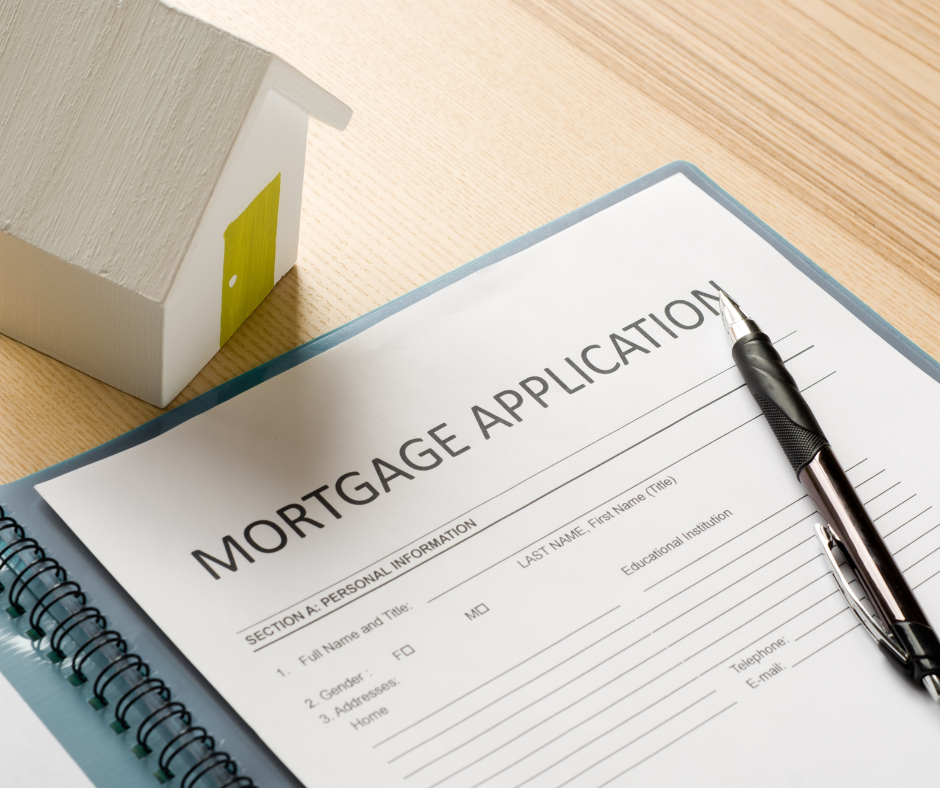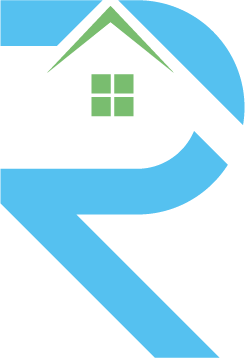Prior to commencing the mortgage application process, it is crucial to undertake a thorough financial evaluation. Below is a compilation of steps you ought to follow:
- Review your credit report: Both major credit agencies, Equifax and TransUnion, should furnish you with a copy of your credit report. It is crucial to carefully review this report for any inaccuracies or discrepancies. If you identify any errors, it’s important to dispute and rectify them promptly.
- Improve your credit score: Enhancing your credit score is vital when seeking a mortgage with favorable terms. To boost your credit score, prioritize paying off any outstanding debts and ensure timely payment of all bills and invoices.
- Determine your Debt-to-Income Ratio (DTI): Lenders evaluate your mortgage application based on your DTI. Divide your monthly debt payments by your gross monthly income to find your DTI. It is preferable to have a lower DTI.
- Build an emergency fund: In the event of unforeseen financial difficulties, having an emergency fund with three to six months’ worth of living expenses can act as a safety net.
Establish a budget
Decide how much you can comfortably afford before you begin looking for a home. Your budget should provide for your mortgage payment each month. This is how you do it:
- Analyze your monthly Income and Expenditures: Take a closer look at your monthly earnings and outflows.
- Use mortgage affordability calculators: Online tools can help you estimate your monthly mortgage payment by considering factors such as interest rates, down payment, and the duration of the loan. This will provide you with a general idea of your budget.
- Consider other homeownership costs: It’s important to remember that owning a home involves costs beyond the mortgage payment, including maintenance, utilities, and property taxes. Incorporate these costs into your budget.
Build savings for your down payment and cover closing costs
The majority of lenders need a down payment, which normally ranges from 3% to 20% of the home’s cost. You’ll also need to pay closing expenses. How to save money is as follows:
- Create a separate savings account: To avoid using the money for other things, create a savings account just for your down payment and closing charges.
- Reduce non-essential expenditure: Check your budget for areas where you can reduce non-essential expenditure and re-direct the money to your savings targets.
- Investigate down payment aid programs: Some programs offer down payment aid, especially for first-time homebuyers. See if you are eligible for such programs in your area by doing some research.
Choose the right mortgage
Mortgages come in a variety of forms, each with their own requirements and restrictions. Spend some time figuring out your possibilities, then pick the one that best suits your requirements:
- Fixed-rate mortgage: Mortgage with a fixed interest rate that remains the same for the duration of the loan, which is typically 15 or 30 years. For people who intend to live in their house for an extended period of time, this offers predictability.
- Adjustable-Rate Mortgage (ARM): Consists of a fixed interest rate period up front, followed by periodic rate modifications. ARMs can offer lower initial rates but come with the risk of rate increases in the future.
- CMHC mortgage loan insurance and Home Buyer’s Plan (HBP): Consider government-backed loans such as CMHC or HBP loans if you are qualified. It allows homebuyers to purchase a home with a down payment as low as 5% of the purchase price and first-time homebuyers to withdraw up to $35,000 from their Registered Retirement Savings Plan (RRSP) to use as a down payment on a home without incurring tax penalties.
- Shop around for lenders: Compare mortgage rates and terms from various lenders to obtain the best deal by shopping around for lenders. Don’t be afraid to bargain with lenders to get better conditions.
Get preapproved
Obtain mortgage preapproval before home shopping. This crucial step offers the following advantages:
- Know your budget: With preapproval, the lender will give you a conditional commitment for a particular loan amount. This assists you in focusing your home search on houses that fall within your price range.
- Simplify the home purchasing process: Preapproved buyers are frequently preferred by sellers because they show that you’re a qualified and serious buyer. You may benefit from this in markets where competition is fierce.
- Speed up closing: Preapproval could speed up the closing process as you’ve already gone through some of the approval steps.

Gather required documents
You must give the lender a number of financial documents when you apply for a mortgage. In order to speed up the application procedure, gather the following documents in advance:
- Income documents: Typically, you’ll need the last two years’ worth of tax returns, W-2s, or 1099s, and pay stubs.
- Asset statements: Bank statements and any other supporting documentation, such as those for investments or retirement accounts, should be included in the asset statements.
- Identification: A valid photo ID, such as a driver’s license or passport, is required for identification.
- Employment history: Be prepared to give a thorough overview of your prior employers and positions held in your previous employment.
Avoid major financial changes
Throughout the mortgage application process, lenders evaluate your financial stability. Avoid making significant financial decisions or changes that might have a negative influence on your application:
- Avoid taking on new debt: Before or during the mortgage application process, avoid taking on new loans or credit card debt since this may harm your trustworthiness.
- Keep a stable job: Lenders favor borrowers with a history of reliable employment. Avoid making a career or job change right before you apply for a mortgage.
- Avoid moving huge amounts of money: Large, illogical deposits or withdrawals from your bank accounts may cause lenders to become suspicious. If such transactions are necessary, talk to your lender first.
Understand closing costs
Besides your down payment, you’ll also need to allocate money for closing charges. These prices cover a range of charges and costs related to completing your house purchase, including:
- Origination fees: Charged by the lender for processing your mortgage application are origination fees.
- Fees for the appraisal: Include the expense of hiring a qualified appraiser to determine the property’s value.
- Title insurance: Protects both you and the lender from disagreements regarding the property’s title.
- Home inspection costs: Although not necessary, a home inspection is recommended to find any potential problems with the property.
- Escrow account funding: To pay for real estate taxes and homeowner’s insurance, you might need to put money into an escrow account.
- Attorney fees: Attorney fees must be paid if an attorney is involved in the closing procedure.
- Recording fees: Fees associated with documenting sales with municipal governments.
- Homeowner’s insurance: You’ll have to pay the first year’s cost in advance for homeowner’s insurance.
- Mortgage insurance: You can be required to pay for private mortgage insurance (PMI) if your down payment is less than 20%.
Plan for homeownership costs
Aside from the mortgage payment, owning a property involves continuous costs. In order to keep your finances stable, be ready for these expenses:
- Taxes on real estate: Find out how much your local property taxes will cost each year and set aside money for them.
- Homeowner’s insurance: Make sure your policy is up to date and protect your investment with homes insurance.
- Maintenance and repairs: In order to keep your home in good shape, set aside money each month for upkeep, repairs, and renovations.
- Utilities: Electricity, gas, water, and sewage are just a few of the monthly expenses to budget for.
Seek professional guidance
It’s important to get professional advice when necessary because the mortgage procedure might be complicated:
- Mortgage broker: By comparing loan offers, navigating the mortgage market, and finding the best conditions for your circumstances, a mortgage broker like Ruby Chawla will assist you.
- Financial advisor: To make sure your home purchase is in line with your overall financial goals, speak with a financial advisor.
Have patience and perseverance
The mortgage application procedure can be difficult and time-consuming. Be persistent if necessary, but also be patient:
- Document requests: Respond to your lender’s demands for documents and information by delivering them as soon as possible.
- Maintain financial stability: Avoid making big changes to your finances while you are applying for a mortgage because doing so could delay or risk your approval.
- Consider multiple lenders: If you experience problems with one lender, think about contacting additional lenders for alternate possibilities.
Educate yourself
Spend some time being knowledgeable about the language and mortgage process. You can make more educated judgments throughout the home-buying process by arming yourself with knowledge.
Assessing your financial situation, creating a budget, setting aside money for a down payment, understanding mortgage alternatives, getting preapproved, and completing the necessary paperwork are all steps in the extensive process of getting ready for a mortgage. It also entails budgeting for closing fees and homeownership expenses, consulting professionals as needed, and exhibiting patience and perseverance at all times. By heeding these suggestions, you’ll be well-equipped to obtain a mortgage that supports your financial objectives and enables you to realize your dream of homeownership.
Ruby Chawla will make sure you are fully prepared to travel where you need to go and to take advantage of any possibilities that present themselves in GTA, Barrie, Innisfil, London, Hamilton and rest of Ontario Region. Call me right away!



